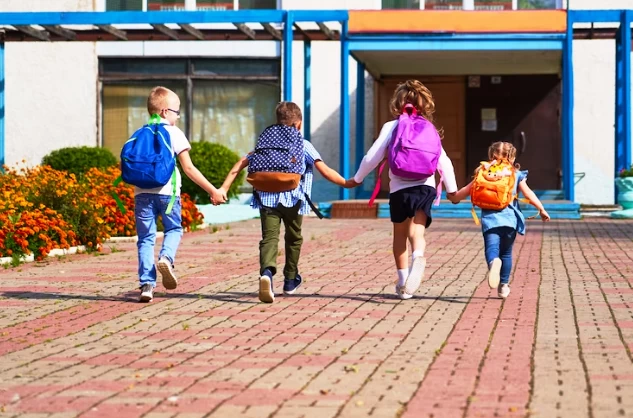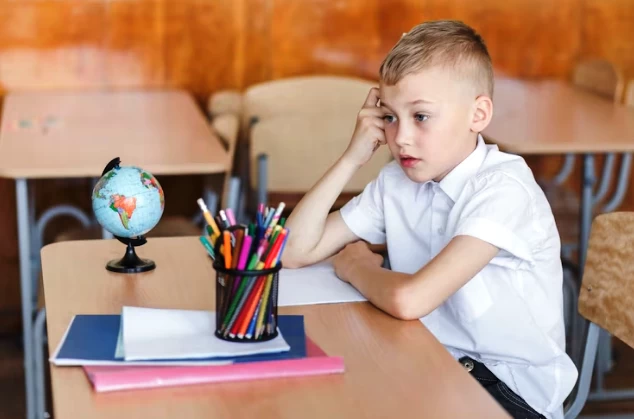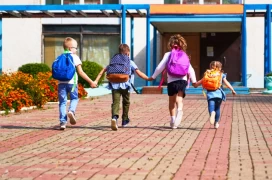
The Process of Starting School and Adaptation in Children
- The Process of Starting School and Adaptation in Children
- School Adaptation Process
- Responsibilities of Parents During the School Adaptation Process
- Peer Bullying and School Adaptation
- Conclusion
The beginning of school for children is a significant milestone, both for the children themselves and for their parents. Adapting to a new environment, interacting with different people, and establishing themselves in a new routine can be an exciting yet challenging process for children. During this period, meeting the emotional, social, and academic needs of children is of utmost importance.
In this article, we will focus on the challenges faced by children who are starting school, the responsibilities of parents during this process, and the issue of peer bullying.
School Adaptation Process
Children who are just starting school often experience complex emotional experiences. Excitement, curiosity, anxiety, happiness, and fear can all intertwine. Stepping out of the familiar routine and environment they are used to in the pre-school period to meet new people and start learning is a significant step for children.
During this process, the roles of parents and teachers are critical. Understanding the emotional needs of children, providing them with trust and support, will facilitate the adaptation process. To support children's adjustment to school, parents should reinforce the idea of going to school as a positive experience and emphasize that school is a fun and learning-filled place.
Responsibilities of Parents During the School Adaptation Process
The school adaptation process involves children adapting to a new environment and fitting into school life. Parents need to support their children, meet their emotional and social needs, and help them develop a positive attitude towards school. Here are the responsibilities of parents during the school adaptation process:
- Maintaining a Positive Attitude and Providing Support: Parents should exhibit a positive attitude towards their children starting school. Emphasizing that school is a fun and educational place and sending supportive messages about making new friends and learning interesting things will boost their motivation.
- Providing Emotional Support: Children starting school can be emotionally sensitive. It's essential for parents to provide emotional support during this time. Encouraging children to talk about their feelings, understanding their anxieties, and instilling confidence in them will facilitate their school adaptation.
- Establishing Daily Routine and Structure: During the school initiation process, children need to adapt to a new routine. Parents should help their children by establishing daily routines, including wake-up times, school hours, study times, and bedtime. This will help children develop time management skills.
- Preparation for School: Before starting school, children need to be physically and mentally prepared. Parents should make school shopping, provide necessary supplies, and impart basic information about school to prepare their children.
- Fostering Communication: Effective communication between parents and children is crucial during the school adaptation process. Parents should encourage their children to share their feelings and experiences. Additionally, staying in touch with the child's teacher and monitoring school developments will support the child's school experience.
- Creating a Supportive Learning Environment: Creating an appropriate environment at home for school assignments and learning activities will support a child's academic development. Parents should actively engage in their child's learning process, guiding them and encouraging their academic interests.
- Developing Social Skills: During the school adaptation process, it's important to enhance children's social skills. Parents should teach their children how to make friends and collaborate effectively with others. Making social interactions a positive experience will contribute to the child's school life.
Parents fulfilling these responsibilities during the school adaptation process will support their children in adapting to school life and experiencing a positive school journey. The emotional and social support provided by parents will have a significant impact on their children's school achievements and happiness.

Peer Bullying and School Adaptation
For children starting school, peer bullying is an important issue that can negatively affect the adaptation process. Peer bullying involves a child being continuously and unwantedly harmed physically, emotionally, or socially by other children.
This kind of bullying can damage the victim's self-esteem, reduce their interest in school, and lead to difficulties in social interactions. Children trying to adapt to a new environment may find it challenging to defend themselves, creating an environment conducive to the spread of peer bullying.
To combat peer bullying, parents and teachers must work together. Educators should teach students empathy and respect, establish a positive social climate in school, and encourage open communication among students. Furthermore, effectively implementing school policies and procedures to address bullying is crucial.
Parents should maintain regular communication with their children, monitor their emotional well-being, and try to understand their experiences during the school adaptation process. Parents should educate their children about bullying and teach them coping strategies. If a child is experiencing bullying, parents should support them in reporting the issue to school authorities.
Conclusion
The school adaptation process for children just starting school can be both exciting and challenging. During this process, it's essential to pay attention to the emotional needs of children, gain their trust, and provide support.
Additionally, children and parents need to be educated about issues like peer bullying, and the school's social environment should be made supportive. The collaboration between schools and families will help children successfully navigate the school adaptation process.




